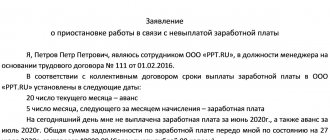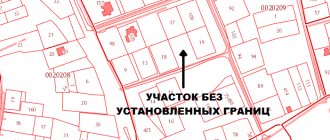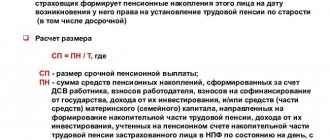No employee will work for his employer for free, so one of the main responsibilities of the employer is to pay wages in full and on time. Therefore, collection of arrears of wages is a frequent procedure in various government bodies dealing with problems of violations of labor legislation (court, prosecutor's office, labor inspectorate).
This article will tell you how to act as efficiently as possible in order to receive all the amounts due under the terms of the employment contract.
General advice on all methods of collecting required earnings
To begin with, it is worth drawing the attention of employees who intend to enter into conflict with the employer that this will, at a minimum, entail dissatisfaction. At the most, this will provoke all sorts of tricks on the part of management, up to and including a negative characterization when applying for a new duty station. Indeed, unfortunately, in most cases, after a complaint against management to government agencies, an employee has to quickly look for another job.
Therefore, it is always worth starting with a verbal appeal to the employer. For some employees, a conversation with the head of the organization is enough to resolve a conflict situation. But this will not always bring the desired results.
The next step is a written appeal to the employer. In any case, a pre-trial resolution procedure is provided for all such situations. Otherwise, the court will simply not accept the statement of claim. And the labor inspectorate, together with the prosecutor’s office, also recommend that you first sort things out within the organization, and only then involve third-party organizations.
IMPORTANT !!! If there is a trade union organization at the enterprise or institution, you can involve it in resolving the conflict.
There is another authority that can help the employee - the labor dispute commission.
If the labor dispute could not be resolved within the organization, then the time has come to exercise the citizen’s opportunity to appeal to government authorities for restoration of violated rights.
But you shouldn’t immediately take the claim to court. It is better to start with the labor inspectorate or the prosecutor's office, because to initiate an inspection of the employer's activities by these authorities, a statement is sufficient. And for the court you will have to collect all the documents yourself. In addition, the labor inspectorate and the prosecutor's office can solve this problem in a shorter time, but in the form of a lawsuit, the dispute can drag on for many months. Especially if the employer has a competent representative in court, with whom it will be difficult for an ordinary employee to compete. Judicial practice shows that the scales of justice can tip in either direction, both the plaintiff (employee) and the defendant (employer).
All types of appeals for the collection of wages will be set out below in the relevant sections of this article.
Judicial practice on wage issues
In my opinion, in judicial practice, two main blocks of claims related to the collection of wages can be distinguished: claims for the collection of incorrectly accrued wages and the second group are claims for the collection of late paid wages and, accordingly, monetary compensation for violation of the payment deadline wages under Art. 236 Labor Code of the Russian Federation.
So, the employee believes that he was incorrectly accrued wages, for example, for working at night, on weekends and non-working holidays, for overtime work, and goes to court. The court makes a decision in favor of the party that provided the most convincing evidence of its position.

For example, by the decision of the Borovichsky District Court of the Novgorod Region (decision dated July 12, 2012), upheld by the Novgorod Regional Court (appeal determination dated October 31, 2012), the claim for the recovery of wages for work overtime and at night was rejected . Time sheets were presented in the case, from which it is clear that overtime and night work actually took place. However, the employer’s representative submitted a calculation to the file, based on which the employee was owed a certain amount for overtime and night work, but in fact he was paid a larger amount, which was also confirmed by financial documents. In its decision, the court provides a calculation based on labor legislation, refers to the employment contract, which provided for compensation for night work in the amount of 20% of wages, and concludes that the employer has no wage arrears to the employee.
It is interesting, in my opinion, the appeal ruling of the Moscow City Court dated December 4, 2015 in case No. 33-43628/15. The plaintiff filed a lawsuit to recover unpaid wages, including payments for working on weekends. The court, refusing to satisfy the claims, motivates its decision by the plaintiff’s failure to prove his claims, that is, the employee did not provide evidence of the lack of payment of compensation for work on holidays, night time, and overtime. The court indicates that if an employee works according to a shift schedule, and his shift falls on a generally established day off for the organization (Saturday or Sunday), then payment should be made in a single amount, since for the employee this day is a working day, while the following weekdays for this employee there will be days off. But if this employee’s scheduled working day falls on a holiday, then he is subject to payment at an increased rate in accordance with Article 153 of the Labor Code of the Russian Federation.
Courts do not always refuse to satisfy plaintiffs' claims and recover unpaid wages. Thus, the Obninsk City Court of the Kaluga Region made a decision, upheld by the Kaluga Regional Court by a ruling dated September 18, 2014 in case No. 33-2719/14, to satisfy the claims for the recovery of underpaid wages from the LLC. The plaintiff’s employment contract was presented in the case, according to which she was given a five-day work week with two days off, on Saturday and Sunday, an agreement with the JSC on organizing catering for the employees of the JSC in the canteen, for the execution of which the employees of the LLC, including the plaintiff, were involved in overtime work and work on weekends, as well as time sheets, from which it is clear that the plaintiff was involved in work on weekends (Saturday or Sunday). Based on these documents, the court recognizes the employee’s claims as proven and makes a decision to recover underpaid wages from the employer.
All of the above court decisions allow us to conclude: it is necessary to present evidence to the court to support your position, bring witnesses, and use expert opinions.
I wanted to highlight another block of legal disputes relating to the payment of workers, namely untimely payment of wages. I remind you that in accordance with Federal Law No. 272-FZ of July 3, 2021, from October 3, 2021, monetary compensation for delayed salaries, provided for in Art. 236 of the Labor Code of the Russian Federation, and is no less than 1/150 of the key rate of the Central Bank of the Russian Federation. Before these changes, the minimum interest rate was equal to 1/300 of the refinancing rate, which since 2016 has been equal to the key rate. The employer must pay compensation, even if the deadlines are violated through no fault of his own. A local regulation, collective or employment agreement may provide for an increased amount of compensation. In the Resolution of the Supreme Court of the Russian Federation dated March 17, 2004 No. 2 “On the application by the courts of the Russian Federation of the Labor Code of the Russian Federation, paragraph 55 also provides that monetary compensation (interest) for violation of the deadline for payment of wages, vacation pay, dismissal payments and other payments , due to the employee, can be recovered by the court even if the employer is not at fault for the delay in payment of these amounts. Thus, even if the employer could not, due to objective reasons, make timely payment, he must still be held liable under Article 236 of the Labor Code of the Russian Federation. So, for example, an employee writes an application to grant him leave starting tomorrow, and the employer agrees to grant him such leave, an order is issued accordingly, the person goes on vacation, and the accounting department does not have time to pay him the due vacation pay three days before the start of the vacation, as provided Article 136 of the Labor Code of the Russian Federation. Consequently, the employer violated the employee’s rights and, when paying him for vacation, must immediately pay compensation for late payment of wages. As an example, I would like to cite the appeal ruling of the Volgograd Regional Court dated October 6, 2021 in case No. 33-13582/2016. The plaintiff filed a claim with the court to recover unpaid wages in her favor. She was underpaid and paid in violation of the established deadlines. Accordingly, the court of first instance came to the conclusion that the employer had violated the established deadline for payment of wages, and rightfully imposed the obligation on the employer to pay them with the payment of interest (monetary compensation) in the amount of not less than one three hundredth of the refinancing rate of the Central Bank of the Russian Federation in force at that time in accordance with Art. . 236 Labor Code of the Russian Federation. The panel of judges checked the calculation and found it arithmetically correct; interest was collected from the employer on the indicated amounts of under-accrued bonus.
To conclude the topic, I would like to note: if an organization complies with the requirements of the law when calculating and paying wages, approves the necessary local acts establishing payments to employees, and the trade union activists carry out explanatory work among personnel, then disputes are not brought to court, but are resolved peacefully, and when preparing materials for court hearings, the lawyer will always have sufficient documents to prove the employer is right. But at the same time, if the employer does not respect the rights of the employee, violates the conditions specified in the employment contract, internal labor regulations, provisions on the payment of wages, on bonuses, then the employee has every right to demand in court the restoration of his violated rights.
Tatyana Yamatina, real estate market specialist; freelance teacher. Legal experience over 16 years
In what order should an application be submitted to an employer?
The claims procedure is also preferable for resolving labor disputes. Therefore, you need to competently draw up an application addressed to the manager about the need for urgent repayment of salary arrears.
It is mandatory to fill out two copies of the application for arrears of wages. One copy is provided to the office of the organization for subsequent transmission to the manager for review. The second remains in the hands of the applicant employee. On the employee’s copy, the specialist from the office must put the registration number of incoming correspondence and the date of receipt of the application. As a rule, there is a special stamp for this. Without this, the application may “accidentally get lost” on the way to the boss.
ATTENTION !!! The deadline for considering an employee’s appeal is not fixed by labor legislation. There is a clear gap in the law here, which creates significant difficulties for both sides of the dispute. By analogy with appeals to government agencies and local governments, a 30-day period is applied.
How to make an application? The appeal can be either handwritten or printed. In the upper right corner the position and last name, first name and patronymic of the head of the organization are indicated; below is the position, as well as the last name, first name and patronymic of the applicant. According to the rules of office work and the Russian language, the word “from” is not written, because the statement is “whom” and not “from whom”.
Below is the essence of the statement, that is, an indication of non-payment of wages during a specific period.
You can declare a suspension of work if your salary is more than 15 days late and not report to your workplace until your earnings are paid. Salaries for the period of suspension of work are still accrued (at the average rate).
The employee must remind management of Article 236 of the Labor Code, which provides for the payment of 1/150 of the currently current key rate of the Central Bank of the Russian Federation on wages not paid on time, even after dismissal for three months (a ten percent rate is currently in effect). This also applies in the event of an innocent delay in monthly payment.
All this is supported by a warning to contact the relevant supervisory authorities or directly to the court.
After receiving a response about the positive result of the consideration of the application, the employee must appear at work no later than the next day. Failure to appear at the workplace will give the employer all grounds for dismissal “under the article”, i.e. for absenteeism.
Compensation for overtime work.
Overtime work is paid for the first two hours of work at least one and a half times the rate, for subsequent hours - at least twice the rate. Specific amounts of overtime pay may be determined by a collective agreement, local regulations or employment contract. At the request of the employee, overtime work may be compensated by providing additional rest time.
A. filed a lawsuit against Construction Company LLC for the collection of arrears of wages, legal costs and compensation for moral damage. From July 13, 2010 to August 10, 2010, the plaintiff worked as a finisher. According to the terms of the employment contract, the official salary was 30,000 rubles, while A. worked from 8.30 to 20.00 every day, seven days a week, with a one-hour lunch break. The processing time for each day was 2 hours 30 minutes, which was not paid to LLC. In addition, the LLC did not charge a regional coefficient and a percentage premium for work in the southern regions of the Far East.
The Ussuriysk City Court of the Primorsky Territory partially satisfied the claims. Construction Company LLC filed a cassation appeal. Having checked the case materials, listened to A., and discussed the arguments of the complaint, the judicial panel found no grounds for canceling the decision made by the city court. The court fully and objectively checked the relevant circumstances and found that the LLC had arrears of wages to A., after the termination of the employment contract, the final payment to him was not made in full, which was not disputed by the parties.
A. was in a fixed-term employment relationship with the defendant from July 13 to August 10, 2010 with an official salary of 30,000 rubles. According to Art. 129 of the Labor Code of the Russian Federation, wages include remuneration for labor depending on the employee’s qualifications, complexity, quantity, quality and conditions of the work performed, as well as compensation and incentive payments. Checking the arguments of the parties regarding the amount of wages, the court indicated that the amount of the plaintiff’s earnings should be calculated taking into account 20% and 30% bonuses to his salary.
The court found that A. actually worked overtime and also on weekends. This is confirmed by the register of persons passing through the entrance of the closed military camp where the work was carried out, as well as by the testimony of witnesses who confirmed that the plaintiff performed work outside the working day established by the employment contract.
Since the defendant did not pay for the plaintiff’s overtime work, A.’s demands in this part were satisfied correctly. The calculation was made by the court in accordance with the requirements of Art. 153 of the Labor Code of the Russian Federation and the presented evidence and is recognized by the judicial panel as justified.
The arguments of the cassation appeal of the LLC representative in the court hearing and in the cassation appeal that the plaintiff was not involved in overtime work and work on weekends cannot be considered valid, since they are refuted by the evidence presented.
Therefore, the decision of the city court was left unchanged by the judicial panel for civil cases of the Primorsky Regional Court, and the cassation appeal of Construction Company LLC was not satisfied (Determination of the Primorsky Regional Court dated March 10, 2011 in case No. 33-2068).
How to contact the labor inspectorate if it was not possible to resolve a salary conflict peacefully?
If the appeal does not produce the desired effect on management, then the employee should move on to the next step in protecting the right to remuneration for work, i.e. to go to the state labor inspectorate with an application for recovery of earnings.
There is no approved application form. The application is drawn up in any form, the main thing is to indicate the period for non-payment of wages. The application must be reviewed within 30 days. Most often, an inspection will be ordered, which threatens the manager with serious trouble. After all, in the processes of such inspections, violations are always found. Accordingly, the fine will be not only for late payment of wages, but also for other shortcomings in work. After all, for each of them a separate order can be issued and a separate fine imposed.
Application to the prosecutor's office against the employer
The prosecutor's office is one of the most “universal” legally protected bodies in the Russian Federation. Acts issued by employees of the prosecutor's office (prosecutors and their assistants) are binding. This provision is enshrined in Art. 6 Federal Law “On the Prosecutor’s Office of the Russian Federation”.
A complaint or application is considered by the prosecutor's office within 30 days from the date of its registration. What follows from Art. 12 Federal Law “On the procedure for considering appeals from citizens of the Russian Federation.”
When establishing the fact of violations (in particular, the labor rights of workers), the prosecutor issues an act of prosecutorial response. An act is either a presentation or a resolution. It is best for the employer to immediately take this act into consideration so as not to incur trouble.
If wages are not paid within 15 days, then from the 16th day of delay the employee has the right not to go to work (Article 142 of the Labor Code of the Russian Federation, paragraph 57 of the Resolution of the Plenum of the Supreme Court No. 2). In this case, the employee is obliged to notify the employer in writing that he is temporarily stopping work.
How should I contact the prosecutor's office?
The prosecutor's office protects a wide range of civil rights and freedoms, including labor rights. As in previous cases, the application is drawn up in free form. Like the labor inspectorate, the prosecutor's office will consider the application for 30 days. During this period, there is active interaction with the management, human resources department and accounting department of the employer.
All necessary documents are requested from the employer; the employee does not provide them (unless he wishes to support his case).
ATTENTION !!! But the prosecutor's office will continue to work on the application only if the manager or other person responsible for paying wages is brought to criminal liability. If the violation is not qualified under Article 145.1 of the Criminal Code of the Russian Federation, then the labor inspectorate will deal with the dispute.
To save time, some far-sighted workers write simultaneous applications to both the prosecutor's office and the labor inspectorate. This is not prohibited by regulatory legal acts.
What should be contained in a complaint to the prosecutor's office or labor inspectorate?
A complaint is usually divided into three semantic parts: introductory “header”, descriptive and operative.
- The name of the body to which the complaint is filed. For example, “To the prosecutor’s office of the Central district of Novosibirsk”;
- The address of this authority;
- Full name of the applicant, his postal address where the response will be sent.
The descriptive part of the complaint is the most important part that you should pay special attention to. The descriptive part must contain all information about the violated rights of the employee. All the circumstances are succinctly and consistently described:
- Start date of work for the employer, date of dismissal (if the employee was fired);
- Information about the document on the basis of which the employee was hired (employment contract)
- Information about the document on the basis of which the employee was dismissed from work (dismissal order)
- Full name of the employer's company;
- The position held (holds) by the applicant;
- Reasons for filing a complaint. Something like: when the salary should have been paid, in what amount, how many days of delay, etc.;
- what amount was delayed or withheld by the employer;
- whether the employee contacted the employer for clarification of the reasons for non-payment of wages, what were the results.
The operative part of the complaint includes the employee’s demands:
- issue an order to the employer to repay wage arrears;
- oblige the employer to pay compensation for late payment of wages
- hold the employer liable under Article 5.27 of the Code of Administrative Offenses of the Russian Federation
- other requirements
The complaint must be accompanied by documents confirming the requirements of the complaint (copy of the employment contract, dismissal order, pay slips, etc.)
A complaint to the prosecutor's office or labor inspectorate must be drawn up in such a way that the person to whom it is addressed clearly understands the essence of the complaint and its content. The official must understand what the violations of your labor rights are and what you want to restore them. Do not give free rein to your emotions, write restrainedly and concisely.
The court as the final authority in considering cases of unpaid wages
Submitting a statement of claim to the court requires the most preparation, compared to previous types of appeals.
When considering a case of non-payment of wages in court, jurisdiction is determined by the Civil Procedure Code of the Russian Federation. Regardless of the amount of debt, the claim will be considered by the district (city) court. Even if it is less than 50,000 rubles.
ATTENTION !!! When collecting earnings in court, the time frame for filing is reduced to three months. The starting point is the first day of payment delay. The statement of claim is filed at the location of the defendant. This is the general rule. But, if it is more convenient for the plaintiff, you can file a claim at the place of his permanent registration.
If the salary is accrued, but for some reason is not transferred to the employee’s account or not issued to him, a somewhat simplified form of proceedings is possible - issuing a court order as an analogue of a court decision. But this is only in the absence of a dispute regarding the amount of accrued wages. Otherwise, it is necessary to first resolve the conflict situation regarding the amount of earnings.
You have 10 days to challenge the court order. After this it must be executed.
The state fee for filing a claim for violated labor rights is not paid by the employee.
The application indicates the name of the court, details of the plaintiff and defendant, the essence of the conflict, and lists supporting documents. In the final part, they indicate their requirements regarding the amount of wage arrears.
The outcome of the case will depend on how well the claim is drawn up and what documents are presented.
Deadlines for payment of educational leave.
In cases established by the Labor Code of the Russian Federation, the employer is obliged to provide students with additional paid educational leave. Collection of educational leave payments from an employee after his dismissal is not allowed.
The Judicial Collegium for Civil Cases of the Tambov Regional Court considered the cassation appeal of LLC "P" against the decision of the Pichaevsky District Court of the Tambov Region in the case of the claim of LLC "P" against F.R. Yu. for the recovery of an unearned advance payment, reimbursement of costs associated with training, legal expenses.
The panel of judges found that F.R.Yu. was hired at LLC “P” in 2009 as a machine operator for the period of spring field and harvesting work until October 31, 2009. At the end of the contract, F.R.Yu. was not fired and continued to work. LLC "P" paid him an advance for future spring field and harvesting work. From April 6 to April 25, 2010, F.R.Yu. was on study leave, which was paid for by P LLC. On May 1, 2010, P. resigned of his own free will. The Company believes that the former employee is obliged to return the specified amounts, since he did not fulfill the obligation to work for a certain period after training or reimburse expenses to the employer upon dismissal before the established period.
By decision of the Pichaevsky District Court the claim was rejected. In the cassation appeal, LLC "P" asked for the decision to be canceled, considering that it was not based on the law. Having checked the case, discussed the arguments of the complaint, and heard LLC “P”, F.R.Yu., the judicial panel found no grounds for canceling the decision.
Refusing the claim for the recovery of the specified amounts from F.R.Yu. in favor of LLC “P”, the court of first instance reasonably proceeded from the fact that there were no legal grounds for the return of the paid funds to the plaintiff: according to Art. 21, 22 of the Labor Code of the Russian Federation, an employee has the right to timely receipt of wages in full, and the employer is obliged to provide employees with equal pay for work of equal value.
Deductions from wages are made only in cases provided for by the Labor Code of the Russian Federation and other federal laws (Article 137 of the Labor Code of the Russian Federation).
The court of first instance noted: evidence that the amounts paid to the defendant were advance payments on wages with subsequent reimbursement of the unearned advance during the spring field and harvesting period of 2010, and not wages for January - March 2010, LLC "P" was not presented to the court.
The issue of recovery from F.R.Yu. of expenses incurred by the employer during the period of study at the university was resolved by the court in accordance with the requirements of Art. 173, 177 of the Labor Code of the Russian Federation and the claim for the recovery of wages, which are retained by the student and employee receiving education for the first time during the period of study leave, was rightfully refused.
Evidence of the costs incurred by LLC “P” related to the training of F. R. Yu. was also not presented. The defendant himself paid for his studies at the university.
Therefore, the decision of the district court was left unchanged, and the cassation appeal was not satisfied (Determination of the Tambov Regional Court dated March 14, 2011 No. 33-734).
Employer bankruptcy as the most problematic situation in collecting wages
If the employer goes bankrupt, the employee may not receive his salary through the court, it all depends on how much property the organization (or individual entrepreneur) has left. After all, wage debts are reimbursed only after payment of legal costs and the activities of the arbitration manager.
Moreover, there are registered and current salary debts. Registered debts arise before bankruptcy, and current debts arise after. With registered salary debts, the employee will be included in the list of creditors. But you may not get them. Entry into the register of creditors is possible by court order provided to the insolvency practitioner. If there is no order, then you can write an application to verify the existence of a debt to this employee in the bankruptcy register.
Current salary debts are immediately taken into account by the arbitration manager.
Collection of compensation through court

Employers who delay wages very rarely pay compensation, and their calculation is purely formal. Therefore, the employee has only one option for recovery - the court.
In the claim document, the employee must indicate a demand for recovery of wages and compensation for the delay. You can also request compensation for moral damages.
Such claims have a shorter statute of limitations than the standard - 3 months from the moment the employee learned about the delay in wages. Usually this is the day when the salary should have been transferred according to the schedule, but the employee may find out about non-payment later, for example, if he was sick and could not know about the non-payment.
A missed claim period can only be restored if there are compelling reasons: illness, caring for a sick family member, administrative arrest, and so on. The reason must be supported by a document.








